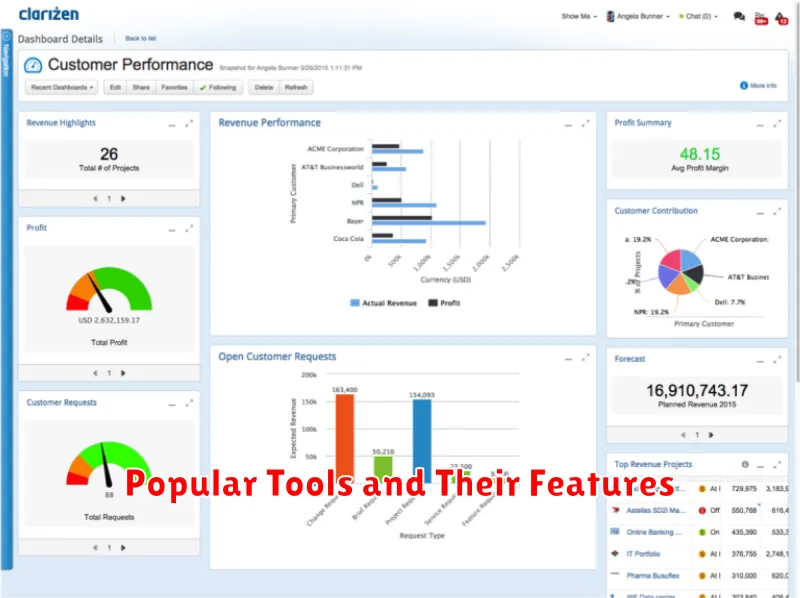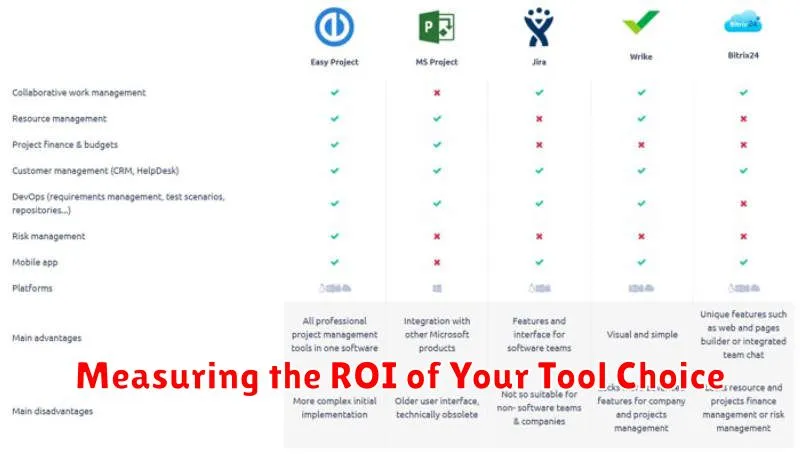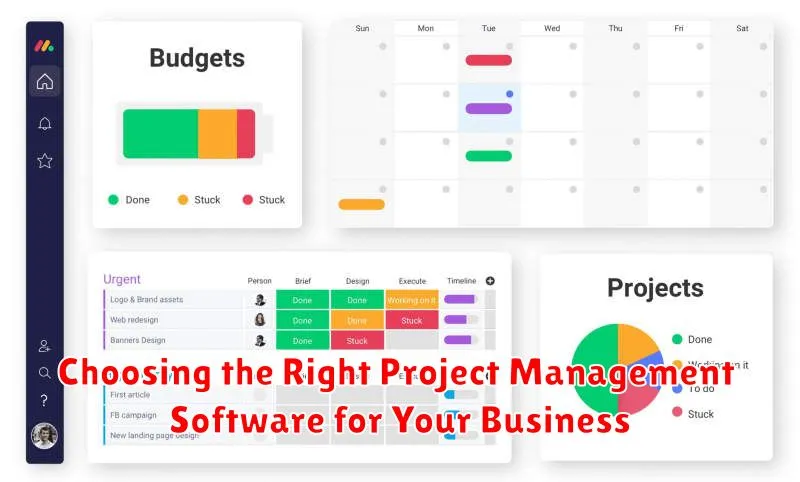Choosing the right project management software can be a critical decision for your business. In today’s fast-paced and competitive market, efficient project management is essential for success. Project management software helps teams collaborate effectively, track progress, manage resources, and ultimately deliver projects on time and within budget. The right software can streamline workflows, improve communication, and boost overall productivity. Whether you’re a small startup or a large enterprise, selecting the appropriate project management tools is a key step towards achieving your business goals. This article will guide you through the process of identifying the best project management software for your specific needs.
With a plethora of project management software options available, navigating the market can be overwhelming. From simple task management tools to complex enterprise-grade platforms, the choices are vast and varied. Understanding your business requirements, project scope, and team dynamics is crucial in determining which project management software will provide the optimal solution. This article will delve into key features to consider, different pricing models, and factors to evaluate when choosing the right project management software to empower your team and drive project success.
What is Project Management Software?
Project management software is a digital tool designed to aid in the planning, organizing, and managing of resources within a project. It provides a central platform for teams to collaborate, track progress, and ensure projects are completed on time and within budget.
These tools offer a range of functionalities, including task management, scheduling, resource allocation, budgeting, and reporting. By streamlining these processes, project management software helps improve efficiency, communication, and overall project success.
Evaluating Your Project Management Needs
Before selecting project management software, it’s crucial to understand your specific needs. This involves identifying your project’s scope, complexity, and the size of your team. Consider the following:
Project Scope: How many projects will you be managing concurrently? Are they simple or complex, involving numerous tasks and dependencies?
Team Size: How many team members need access to the software? Will they be collaborating on tasks and sharing updates?
Key Features: What functionalities are essential for your projects? Do you need Gantt charts, Kanban boards, time tracking, or reporting features? Prioritizing these features will help narrow down your software options.
Popular Tools and Their Features

Selecting project management software requires careful consideration of various tools and their functionalities. This section briefly examines some popular options.
Asana
Asana excels in task management and team collaboration. Its key features include customizable workflows, project timelines, and progress tracking.
Trello
Trello, known for its Kanban-style boards, provides a visual approach to project management. Its drag-and-drop interface simplifies task organization and prioritization.
Monday.com
Monday.com offers versatile features for managing various project types. Its customizable dashboards and automation capabilities enhance workflow efficiency.
Integrations with Other Business Apps
Seamless integration with other business applications is a crucial factor when selecting project management software. Consider which apps your business relies on, such as CRM, accounting, or communication platforms.
Choosing software that integrates with your existing tools streamlines workflows and enhances productivity. For example, integration with your CRM can automatically update project information when a deal closes. Integrating with communication platforms keeps team members informed about project updates in real time.
Evaluate the integration capabilities of different project management solutions. Some offer native integrations, while others rely on third-party connectors or APIs. Ensure the chosen software supports the integrations essential to your business operations.
Budgeting for Project Management Tools
Cost is a critical factor when selecting project management software. Establish a clear budget before evaluating options. Pricing models vary widely.
Some tools charge a flat monthly fee, while others charge per user. Open-source solutions are often free to use but may require internal resources for setup and maintenance, representing an indirect cost.
Consider both the initial cost of the software and any ongoing expenses, such as support, training, or add-ons. Factor in potential cost savings resulting from improved efficiency and collaboration.
Ensuring Team Collaboration and Communication
Effective team collaboration and communication are crucial for successful project completion. Project management software facilitates this by providing centralized platforms for information sharing and interaction. Look for features like built-in messaging, file sharing, and discussion forums.
Consider software that allows real-time updates and notifications to keep everyone informed of progress and changes. This reduces the risk of miscommunication and keeps the project on track. Features like task assignment and progress tracking also improve team accountability and transparency.
Security and Data Protection Considerations
Security and data protection are paramount when selecting project management software. Sensitive project data, intellectual property, and client information must be safeguarded.
Consider the software’s security features. Does it offer two-factor authentication, data encryption, and regular security audits?
Understand the software provider’s data storage and privacy policies. Where is your data stored, and how is it protected? Compliance with regulations such as GDPR is crucial, especially when dealing with personal data.
Scalability and Customization Options
As your business grows, your project management needs will evolve. Scalability is crucial in software, ensuring it can handle increasing project complexity, team size, and data volume without performance issues. Consider whether the software can accommodate your future growth projections.
Customization is equally important. A rigid system can hinder productivity. Look for software that allows customization of workflows, dashboards, reports, and notifications to align with your specific business processes. This ensures the software adapts to your needs, not the other way around.
Training Your Team Effectively
Effective training is crucial for maximizing the benefits of any project management software. A well-trained team can utilize the software’s features to their fullest potential, leading to increased productivity and successful project completion.
Consider these key aspects when developing a training program:
- Identify Skill Gaps: Assess your team’s current skills to pinpoint areas needing improvement.
- Tailored Training: Customize the training to address specific software features relevant to each team member’s role.
- Hands-on Experience: Provide practical exercises and real-world scenarios to reinforce learning.
- Ongoing Support: Offer continuous support and resources after initial training to address any questions or challenges.
Measuring the ROI of Your Tool Choice

Evaluating the return on investment (ROI) of project management software can be challenging, but crucial. Focus on measuring tangible improvements. Track metrics like project completion rates, on-time delivery, and budget adherence before and after implementation.
Quantify the impact of improved collaboration. Consider factors such as reduced meeting times and streamlined communication. These contribute to increased productivity and ultimately, a positive ROI.
While some benefits are difficult to quantify directly, like improved team morale, their impact on overall performance should be considered as part of a holistic ROI assessment.

